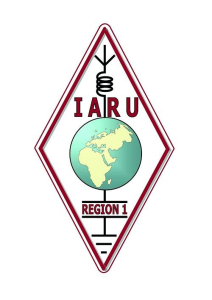 IARU was represented at the meeting of CEPT Project Team A (responsible for some aspects of the CEPT position for WRC-19), held in Prague from June 17-21.
IARU was represented at the meeting of CEPT Project Team A (responsible for some aspects of the CEPT position for WRC-19), held in Prague from June 17-21.
The IARU Region 1 website reports:
Of particular interest were discussions on two proposed Agenda items for WRC-23, concerning the sharing of the 1240-1300 MHz band with the Galileo navigation system and the proposal from France to study a range of frequencies, including the 144 MHz amateur band, for future aeronautical applications.
The output from PTA does not carry forward the Galileo proposal, but it is likely that further discussions will take place prior to the Conference Preparatory Group meeting in August. Meantime work on this issue will also continue in other specialist CEPT forums. IARU will continue to support this approach and it believes this will be the most efficient method for developing the sharing guidance required to protect Galileo operations in a timely manner.
Regarding new aeronautical frequencies (including 144-146 MHz), the proposal was not strongly opposed by administrations and has been carried forward to the higher level CEPT Conference Preparatory Group (CPG) meeting in August for final adoption.
IARU views with grave concern any proposal to include the 144 MHz band in the proposed aeronautical agenda item and will be making every effort to fully protect amateur radio interests and seek the support of regulators in this regard.
The band 144-146 MHz is allocated globally to the amateur and amateur satellite services on a primary basis. It is the only globally harmonised VHF band for the amateur and amateur satellite service. As such it is an important and widely used part of the amateur spectrum with a vast installed base of both terrestrial/maritime amateur users and systems and operational satellite stations including the International Space Station (ISS).
This heavily used band supports a large number of repeater stations, segments for weak-signal long distance terrestrial and EME (Earth-Moon-Earth) communications, satellite and ISS usage, data services, as well as conventional terrestrial and tropospheric communications. The Primary status of the band has also enabled a number of amateur aeronautical uses including on manned flights and high-altitude balloons. Supporting all of this is a wide variety of commercial and experimental equipment, ranging from ultra-low noise preamplifiers for sensitive receivers, software defined radios and transmitting systems that can deliver high EIRP levels when needed to overcome high loss propagation paths.
Given the propagation to/from an aircraft at altitude, it is entirely possible that harmful interference to sensitive amateur and amateur satellite receivers will be caused over a 1,000 km radius of a single aircraft.
IARU will shortly be providing a brief to Member Societies and other interested parties, asking them to discuss the French proposal with their administrations well in advance of the August CEPT-CPG meeting.
It is possible that France will seek to introduce into other Regional Telecommunications Organisations (RTO) the same proposal to study the 144-146 MHz band for aeronautical use. IARU will provide a brief shortly to enable representations to be made to administrations in countries under those RTOs for protection of this amateur spectrum allocation.
Source: IARU Region 1 http://iaru-r1.org/
Download the documents from the CEPT SPG Project Team A meeting in Prague June 17-21 from
https://cept.org/ecc/groups/ecc/cpg/cpg-pt-a/client/meeting-documents/?flid=5624
France proposes 144-146 MHz for Aeronautical Mobile Service
http://www.southgatearc.org/news/2019/june/france-proposes-144-146-mhz-for-aeronautical-mobile-service.htm
1240-1300 MHz band discussed by CEPT WGFM and CPG/PTA
https://amsat-uk.org/2019/05/31/1240-1300-mhz-band-discussed-by-cept-wgfm-and-cpg-pta/
Could a new licence class help counter threats at VHF and above?
http://www.southgatearc.org/news/2019/june/could-a-new-licence-counter-threats-at-vhf-and-above.htm
Click here for original story, 144 and 1240 MHz bands – WRC-23 Agenda Items – Update
Source: Amsat UK